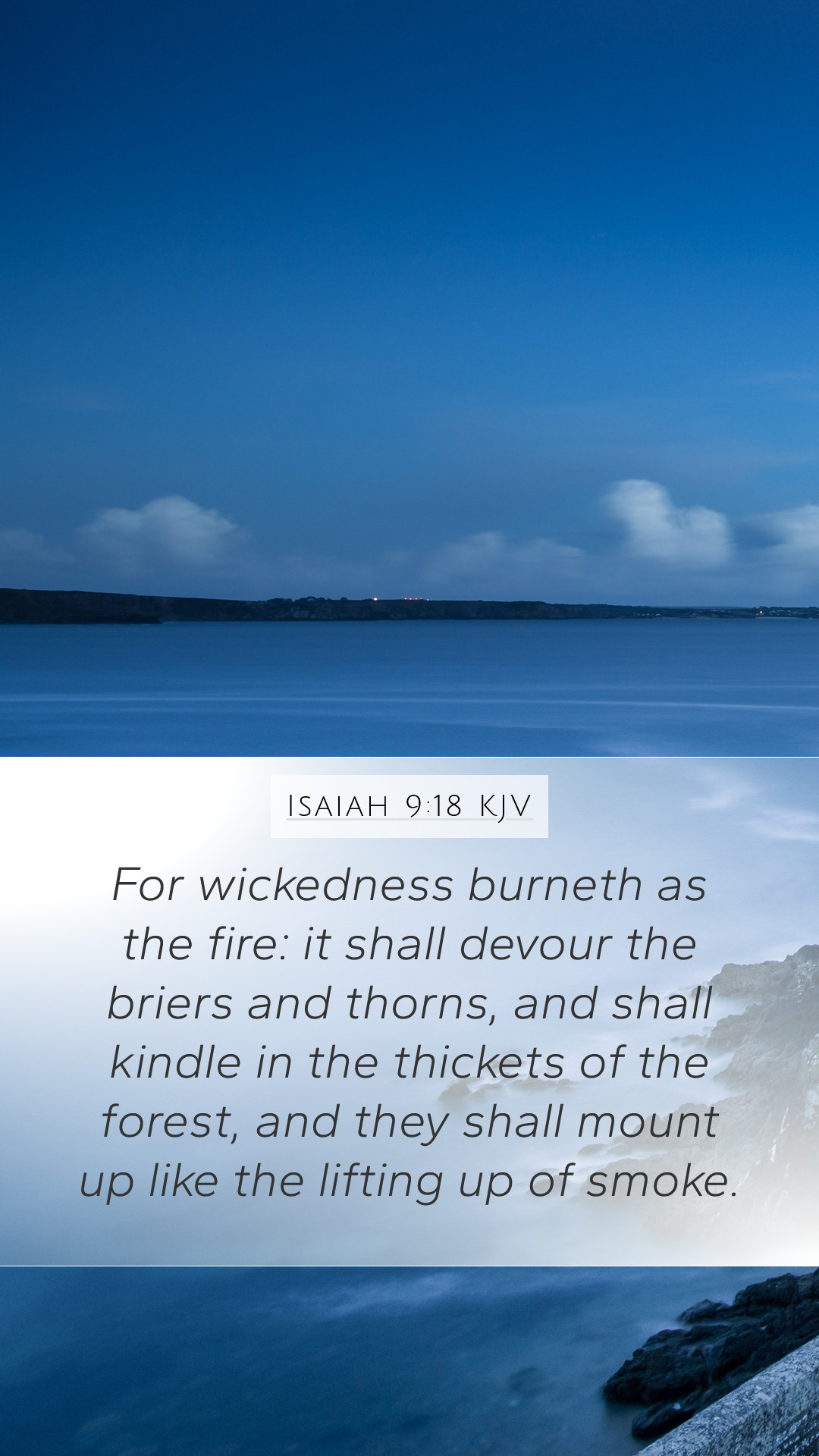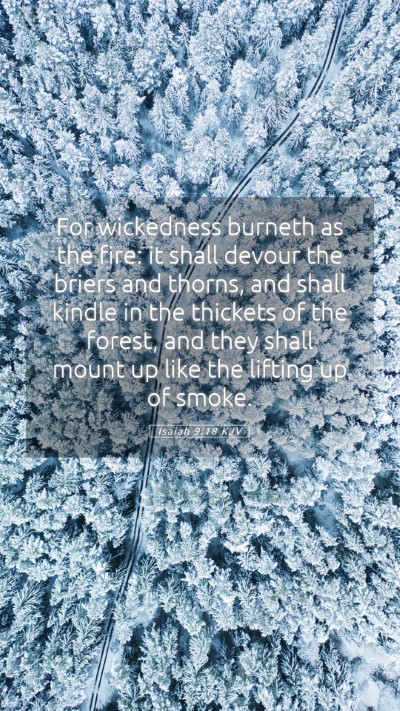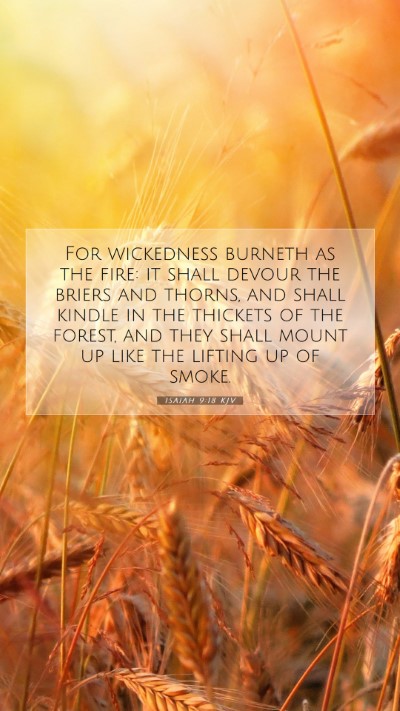Understanding Isaiah 9:18 - Bible Verse Commentary
Verse Reference: Isaiah 9:18
Verse Text: "For wickedness burneth as the fire: it shall devour the briers and thorns, and shall kindle in the thickets of the forest, and they shall mount up like the lifting up of smoke."
Overview of the Verse
Isaiah 9:18 uses vivid imagery to portray the destructive nature of wickedness, likening it to a consuming fire that ravages the landscape. This verse serves as a stern warning about the consequences of immorality and the inevitable judgment that follows.
Bible Verse Meanings and Interpretations
In considering this verse, we draw insights from several public domain commentaries.
Matthew Henry's Commentary
According to Matthew Henry, this passage reflects the nature of sin which spreads and causes devastation akin to a wildfire. He notes that the image of burning thorns and briers symbolizes the futility and destructiveness of wickedness, indicating that God will not allow such behaviors to persist unchecked. The lifting smoke represents the visible consequences of sin, observable to all.
Albert Barnes' Notes
Albert Barnes emphasizes that the “fire” signifies the judgment of God against His people when they turn to wickedness. He interprets the verse both literally and metaphorically, suggesting that Israel’s unfaithfulness to God ignites divine retribution. The text invites readers to contemplate the seriousness of turning away from righteousness, prompting a reflection on the ultimate fate of a nation or individual in rebellion against divine law.
Adam Clarke's Commentary
Adam Clarke elaborates on the verse by discussing the imagery of thorns and briers being devoured by fire. This destruction represents not just the immediate consequences of sin but also the long-term consequences on society. Clarke points out the connection to God's holiness and the necessity of purification through trials, hinting at a divine strategy to wrestle individuals back to a state of righteousness through judgment.
Key Insights from the Commentaries
- Destructive Nature of Sin: Wickedness is depicted as a fire that consumes and devastates.
- Divine Judgment: The text underscores God’s response to sin through judgment, making the consequences clear.
- Call to Righteousness: This verse serves as a reminder of the importance of adhering to God's commandments to avoid destruction.
- Societal Implications: The destruction wrought by sin affects not just individuals but communities, emphasizing the collective responsibility of God's people.
Cross References
To deepen the understanding of Isaiah 9:18, the following cross-references may be considered:
- Isaiah 10:16 - God's judgment on the proud and haughty.
- Isaiah 30:27-33 - The consuming fire of God's fury and judgment.
- James 3:6 - The destructive potential of the tongue, likened to fire.
Application of the Verse
This verse can be applied in various aspects of daily life and spiritual reflection:
- Personal Reflection: Individuals are encouraged to examine their lives for any wicked behavior that could lead to destruction.
- Community Responsibility: This verse serves as a compelling reminder for communities and nations to uphold righteousness.
- Spiritual Growth: By recognizing the seriousness of sin, believers can strive for holiness and avoid the fires of judgment.
Conclusion
Isaiah 9:18 offers profound insights into the nature of wickedness and its consequences through rich imagery and strong warnings. As we delve into its meaning, this verse calls for serious consideration of our actions, urging us toward a life aligned with God's righteousness. The combined commentary from Matthew Henry, Albert Barnes, and Adam Clarke enriches our understanding, encouraging further exploration and application of Scripture in our lives.


